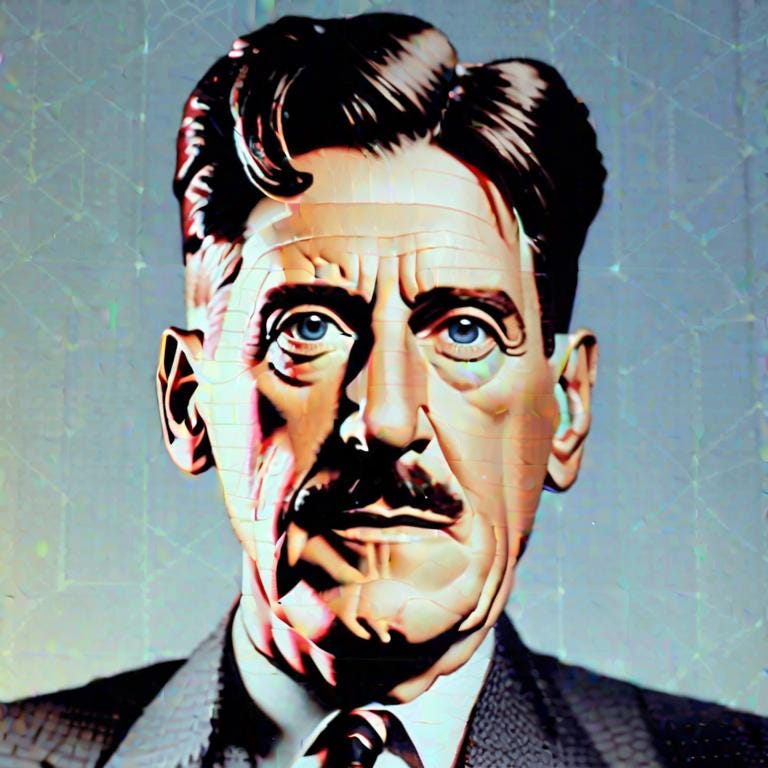Understanding Orwell's 1984: Insights into AI's Implications
Written on
Chapter 1: The Lasting Legacy of 1984
In the spirit of revisiting classic literature, I recently dusted off my old copy of 1984 to uncover passages that resonate with today's AI landscape. When I first encountered Orwell's work, the concept of artificial intelligence was still in its infancy, and I had not yet stepped into the AI field.
For those unfamiliar with the book, I highly recommend rectifying that oversight as soon as possible. The essence of Orwell's dystopian narrative is a stark warning about the perils of unchecked authority and pervasive surveillance.
Although it was published in 1949, it might seem that Orwell's novel doesn’t directly address modern artificial intelligence. Yet, it offers profound reflections on information manipulation, surveillance, and power dynamics, which are crucial as we navigate the ethical dilemmas that AI introduces to contemporary society.
Telescreens and Pervasive Surveillance
One of the most unsettling tools of control in Orwell's universe is the telescreen. Found in every home, these devices monitor citizens while simultaneously disseminating propaganda. The Party uses them to maintain an unyielding grip on the population, instilling loyalty through fear.
When 1984 was first published, the concept of these telescreens would have seemed far-fetched. However, readers today can draw alarming parallels with the devices we voluntarily bring into our lives: smart TVs, smartphones, and smart home technology. We inhabit a world where our devices are increasingly interlinked, raising significant concerns about surveillance and data misuse. With the rapid advancements in AI, these gadgets could evolve into fully autonomous systems, analyzing our behaviors, conversations, and preferences—either enhancing our lives or exerting control over us.
Previously, I believed that the sheer number of individuals required to monitor the entire population made such surveillance impractical. However, AI effectively removes that barrier, making it a plausible reality.
The Fluidity of Truth
Winston Smith's workplace, the Ministry of Truth, is dedicated to the constant rewriting of history. The past is continually adjusted to align with the Party's current narrative, ensuring their perpetual correctness. The phrase “2 + 2 = 5” serves as a jarring example of this manipulation. If the Party asserts it, then 2 + 2 is indeed 5, and individuals must either force themselves to believe it (a concept known as doublethink) or face erasure.
Reflecting on this within the context of AI brings to mind the capabilities for massive information manipulation. Take deepfakes, for instance—technology that can convincingly swap one person's likeness or voice with another's. With the rise of AI, the potential for mass disinformation on social media platforms becomes increasingly worrisome, as these manipulations blur the distinction between reality and fabrication.
The Erasure of Independent Thought
Orwell's Thought Police epitomize the terrifying notion of a society devoid of freedom. They seek out and punish thoughtcrime, which encompasses any beliefs that challenge the Party's ideology. The concept of thought policing is truly nightmarish.
Now consider the contemporary phenomenon of Cancel Culture, exacerbated by AI. In today's world, AI algorithms on social media curate our content based on our preferences. While these algorithms aim to enhance our experiences, they inadvertently create echo chambers that suppress diverse perspectives and reinforce our existing biases.
A Future Defined by Our Choices
While 1984 paints a bleak picture of technology's dangers, it also serves as a poignant reminder that our future is determined by our decisions. AI is fundamentally a tool—neither inherently good nor bad. Its effects depend on how we, as a society, choose to harness its capabilities.
The obstacles posed by AI are not just technical; they also delve into deep philosophical questions. To navigate this future, we must reassess our relationship with technology, establishing boundaries when necessary, and engaging in ongoing ethical discussions about its use.
Orwell's prescient words serve as a warning against complacency. As we stand on the brink of an AI revolution, we must remember that the core of 1984 is not solely about technology but about humanity, power, and freedom. It is these values that we must endeavor to safeguard in the future we create.

Chapter 2: The Relevance of AI Today
The first video titled "AI: The New Big Brother? A Contemporary Look at Orwell's 1984" examines the parallels between Orwell's warnings and the modern implications of artificial intelligence, reflecting on surveillance and control in today's society.
The second video, "The Visual Interpretation of George Orwell's 1984 as created by Artificial Intelligence," explores how AI can reinterpret classic literature, showcasing the intersection of technology and storytelling.